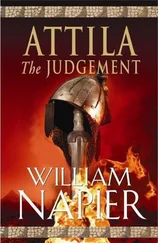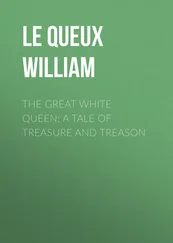William Napier - The Great Siege
Здесь есть возможность читать онлайн «William Napier - The Great Siege» весь текст электронной книги совершенно бесплатно (целиком полную версию без сокращений). В некоторых случаях можно слушать аудио, скачать через торрент в формате fb2 и присутствует краткое содержание. Жанр: Исторические приключения, на английском языке. Описание произведения, (предисловие) а так же отзывы посетителей доступны на портале библиотеки ЛибКат.
- Название:The Great Siege
- Автор:
- Жанр:
- Год:неизвестен
- ISBN:нет данных
- Рейтинг книги:5 / 5. Голосов: 1
-
Избранное:Добавить в избранное
- Отзывы:
-
Ваша оценка:
- 100
- 1
- 2
- 3
- 4
- 5
The Great Siege: краткое содержание, описание и аннотация
Предлагаем к чтению аннотацию, описание, краткое содержание или предисловие (зависит от того, что написал сам автор книги «The Great Siege»). Если вы не нашли необходимую информацию о книге — напишите в комментариях, мы постараемся отыскать её.
The Great Siege — читать онлайн бесплатно полную книгу (весь текст) целиком
Ниже представлен текст книги, разбитый по страницам. Система сохранения места последней прочитанной страницы, позволяет с удобством читать онлайн бесплатно книгу «The Great Siege», без необходимости каждый раз заново искать на чём Вы остановились. Поставьте закладку, и сможете в любой момент перейти на страницу, на которой закончили чтение.
Интервал:
Закладка:
With grieving and grace, Villiers de l’Isle Adam accepted the terms of surrender.
As the old knight and his men limped away down the stony road to the harbour and Suleiman watched them go, he was heard to murmur, ‘It is with some regret that I drive this valiant old man from his home.’
But they were destroyed as a fighting force. Without a homeland, with not a single fortress to their name, they who once commanded a chain of mighty forts and commanderies right across the Holy Land, the fiercest defenders for Christ — they were no more to be feared now than a toothless old dog.
‘They are out of their time,’ said Suleiman that evening, addressing his vizier. He placed his bare feet in the silver bowl for the slavegirl to wash. ‘They are …’ The scholar Sultan searched for the right word, and found it in the Greek. ‘They are an anachronism .’
The vizier looked nonplussed.
Suleiman would have smiled, if smiling had not been inappropriate for one of his dignity.
‘They belong to the ancient world, the old centuries. In these days, the new kings and rulers of the Christians have no sympathy for such — heroics as theirs. The Knights of St John are an embarrassment to them. The Genoans, the Venetians, the French — they would rather trade with us, buy our silks, sell us their grain.’
‘And their armaments,’ the vizier murmured.
Suleiman paused to admire the slavegirl. The softness of her hands, the falling curtain of her hair.
‘Quite so. Though the knights themselves remain our enemies, they are powerless now. The wider Christian world has moved on. It has lost its appetite for war with Islam. It prefers silks, and spices, and gold. It is also bitterly divided against itself, these Catholics and Protestants endlessly fighting each other over the intricacies of their barbarous faith.’
‘Yet we ourselves wish them nothing but peace.’
‘Of course.’
Suleiman allowed the slavegirl to dry his feet. He looked up at his vizier, eyes smiling.
‘Nothing but peace.’
In the city, the Bektaşis were celebrating the triumph of Islam.
First they attacked the Church of St John. They gouged lumps of plaster out of the brightly painted walls with their crescent yatagan daggers, they spat and urinated and heaped curses on these foul images of the idolatrous Christian dogs. They had confused a Jewish prophet with the unspeakable, the immeasurable, all-seeing, all-knowing Divine. What blinded slaves of Shaitan and his deceits!
They overturned the altar and smashed it to fragments; they flung outside all the relics, ornaments and crucifixes and burned them in a heap in the square. Happily, their religious zeal coincided with their love of lucre, a coincidence often found among men. For some of the Christian ornaments and reliquaries abandoned by the fleeing townsfolk were of finest silver and gold, and readily taken as booty.
They smashed open the ancient tombs of the Grand Masters in the crypt of the church, hoping to find treasure. In vexation at finding nothing but plain wooden crosses and old bones, some seized these crosses and bones and ran about the streets, using them as clubs. Some especially in the grip of religious fervour found the hospital where a few sick still lay, too ill to be moved, and beat them to death in their beds, raping the women first before killing them.
At dawn on Christmas Day, Suleiman himself rode into the city, sending word that order should be restored. His men had had their reward for victory. He approved of the cleansing of the Christian church, and ordered it to be turned into a mosque, with prayers to Mecca to be said five times daily from tomorrow. But the others had betrayed his own promise of fair treatment. He ordered those who had attacked the hospital to be disembowelled and beheaded, all stray dogs and pigs to be killed, and the streets to be thoroughly cleaned.
He gave another order, which caused surprise among his Janizary guards, but could not be disobeyed. He ordered that the magnificent carved stone escutcheons of the Hospitallers, all along the principal thoroughfare of the city known as the Street of the Knights, were not to be destroyed or damaged in any way.
At the moment that Suleiman rode into Rhodes on Christmas Day, it was said that Pope Hadrian was celebrating Mass in St Peter’s, Rome. As he raised the chalice, a cornerstone fell from the roof above him and smashed to the ground close by.
They said it was an ominous sign that one of the key bulwarks of Christendom had been lost.
From the tilting decks of the St Mary , rolling through unforgiving winter seas, the knights looked back not only at lost Rhodes, but at the snow-capped Taurus mountains beyond, the whole of the Levant, the ancient heartlands of Christianity. So many knights, Hospitallers, crusaders, had fought and died to regain those lands for the Cross, over nearly five long centuries. Now all of it was lost.
They sailed west, and three weeks later, Villiers stepped ashore at Sicily with his handful of faithful knights, and all the islanders there to meet him knelt bare-headed in honour of fallen greatness. The knights knelt too, giving thanks to God that they had survived the dangerous winter voyage.
It was a cold day, and the January wind ripped at a tattered banner the knights brought with them. At one point the wind seemed about to tear the banner free altogether and hurl it contemptuously away, until one knight stood and planted the staff more firmly in the wet sand.
It was the knight called La Valette.
The banner showed the Holy Mother with her crucified Son. Weather-beaten, salt-stained and torn, it bore the motto,
Afflictis spes uniea rebus .
In adversity our only hope.
Part I
1
Istanbul: October, 1564
‘All present, bow the knee!’
‘Bow the knee and bow the head, before the Sultan of the Ottomans, Allah’s Viceroy on Earth, Lord of the Lords of this World, Possessor of Men’s Necks, King of Believers and Unbelievers, Emperor of the East and West, Majestic Caesar, Seal of Victory, Refuge of all People, the Shadow of the Almighty, the Destroyer of Christendom!’
Any who did not bow his head would lose it. All bowed.
Now almost seventy years of age, Suleiman the Magnificent, ruler of the most powerful empire on earth, turned carefully on the high dais and sat back upon the richly gilded, crimson cushioned Throne of the Caliph. Before him, more than a hundred courtiers, viziers, eunuchs and pashas bent low in obeisance. He waited for some time. It was at his word, his whim, that they might arise again, and none other. Let them remain bowed until they stiffened and ached. Let them remember.
At last he gave the nod, and the assembled commanders of his empire stood upright once more.
He surveyed the Hall of Audience, hushed with soft Persian carpets, lit with fine silver filigree lanterns, hung with silks and tapestries. He knew almost everything, but let them think he knew all. His great dark eyes rested on many a face in turn. His once handsome features now sagged, riven with lines of care, and more private sorrows. But he was Sultan and Emperor still.
In the past four decades, had he not conquered from the Pillars of Hercules to the Black Sea, from the heart of European Christendom to the shores of India? Tomorrow he would have his crier give out his list of conquests once again. Let none think this ageing Emperor was finished yet, or ripe to fall. Let them remember.
‘By the will of Allah, the compassionate, the merciful, Conqueror of Aden, Algiers, Baghdad, Belgrade, Budapest, Rhodes, Nakshivan, Rivan, Tabriz, and Temesvár!’
Читать дальшеИнтервал:
Закладка:
Похожие книги на «The Great Siege»
Представляем Вашему вниманию похожие книги на «The Great Siege» списком для выбора. Мы отобрали схожую по названию и смыслу литературу в надежде предоставить читателям больше вариантов отыскать новые, интересные, ещё непрочитанные произведения.
Обсуждение, отзывы о книге «The Great Siege» и просто собственные мнения читателей. Оставьте ваши комментарии, напишите, что Вы думаете о произведении, его смысле или главных героях. Укажите что конкретно понравилось, а что нет, и почему Вы так считаете.












